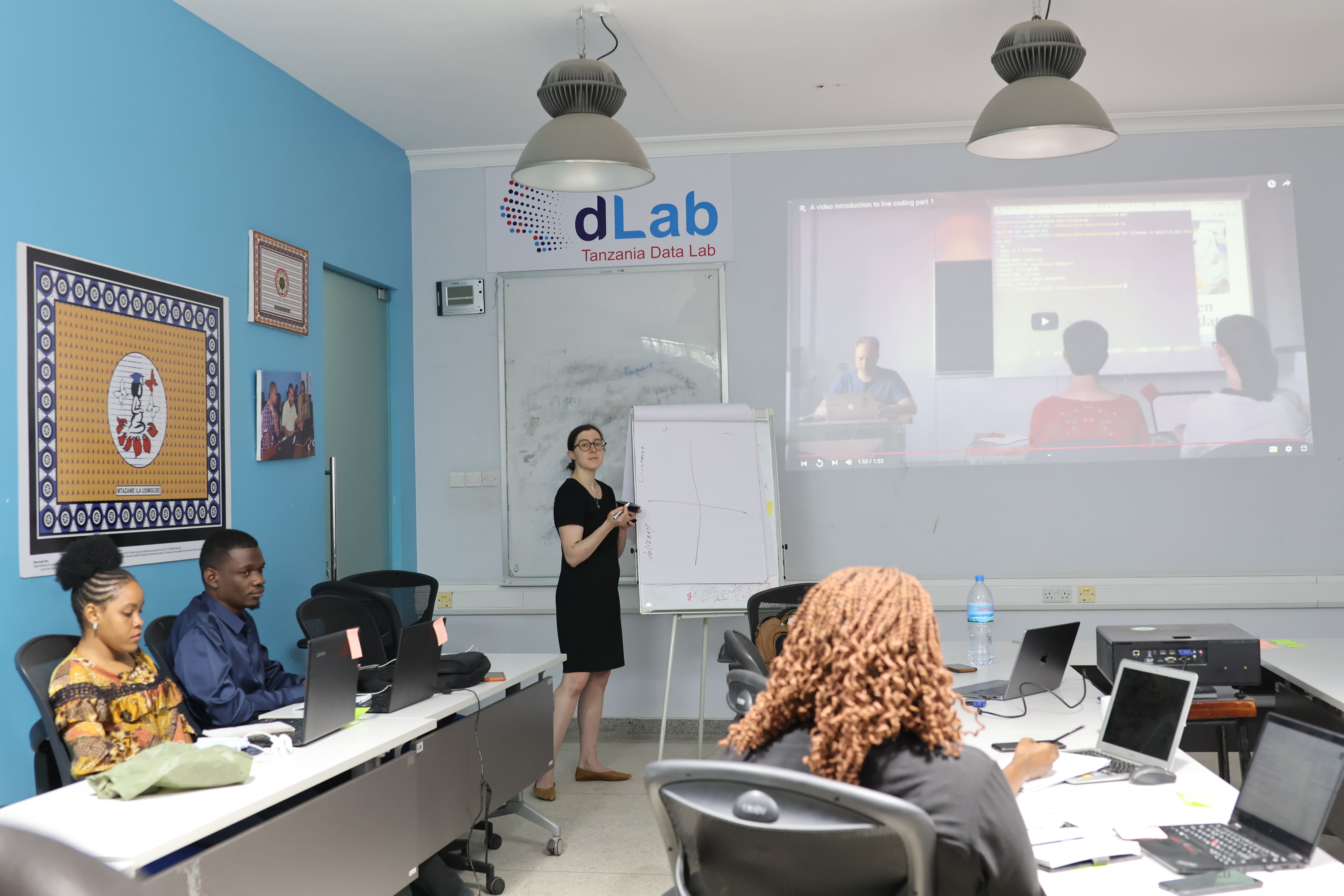
EMPOWERMENT: Sharpening training skills of data scientists, mathematical modelers

Dr. Amelia Bertozzi-Villa, a disease modeler from the Institute for Disease Modeling (IDM) at the Gates Foundation and Dr. Punam Amratia, a research scientist with the Malaria Atlas Project (MAP) East Africa Node, implemented by Ifakara Health Institute, have been conducting a two-week session aimed at sharpening trainer teaching skills.
Attending the training are the data scientists and mathematical modelers from Ifakara and Tanzania Data Lab (dLab). The session places significant emphasis on lesson design and delivery. Participants will learn to effectively identify target audiences, establish clear objectives and outcomes, and design assessments that precisely measure student learning.
Additionally, they will gain insights into crafting lesson content that is engaging, informative, and accessible to learners with diverse backgrounds and learning styles. Through practical exercises and collaborative activities, participants will develop the skills necessary to create impactful and effective lessons.
Because much of their work involves programming, they will also learn how to effectively teach using the live coding method, enhancing student engagement and comprehension.
A crucial step for early career scientists
Gloria Shirima, a Modeler at Ifakara, expressed, "The knowledge acquired from this workshop signifies the beginning of our journey as early scientists to train others and facilitate the smooth transfer of skills and knowledge through future trainings and presentations.
An enriched understanding
Nicholaus Mziray, a mathematical modeler and data scientist at Ifakara, describes the workshop as equipping him with "essential knowledge and skills" for effective training. With this newfound understanding, he looks forward to organizing impactful workshops both within and beyond our borders.
In the past the data science team at Ifakara has been actively engaged in facilitating various trainings within and outside the country, this "training the trainer" program equips participants with a comprehensive toolkit for effective scientific education, empowering them to share knowledge with their peers and to educate the next generation of scientists.
Live coding sessions
On the final stretch of the training, participants seized the chance to apply their newfound knowledge in live coding sessions, with their peers acting as students. Post-session, both facilitators and learners engaged in discussions, highlighting the importance of a “growth mindset.”
Training for sustainability
In today's rapidly evolving world, the need for sustainability has become increasingly paramount. Dr. Bertozzi-Villa, emphasizes the critical juncture we find ourselves in—” there’s a high demand for this sort of training” she says, yet the risk of subjects not being taught well potentially deterring aspiring practitioners is very much real.
It's within this context that Dr. Amratia sheds light on the essence of training, framing it as an answer to the question of how one can effectively impart the skills and knowledge they've acquired as a proficient practitioner.
Central to this is the concept of sustainability - the continuity and effectiveness of education. As Dr Amelia points out, the goal isn't merely to empower learners to master the subject matter but also to become adept at teaching others, a loop of knowledge sharing is established—one that continues and amplifies the impact of training efforts.
Over the past two weeks, Dr. Bertozzi-Villa has been actively engaged in teaching participants, witnessing first-hand their journey of dealing with challenges and overcoming obstacles. Crucially, she points out the importance of embracing imperfection in the learning process. Rather than expecting flawless execution from the outset, the emphasis is on continuous improvement and adaptability—a “growth mindset” as they put it.
Crafting a global resource
This training initiative is part of a broader series that Dr Bertozzi-Villa has been conducting for years, initially with Ifakara data scientists and mathematical modelers, and has now expanded to include the Dlab team.
Dr. Amratia envisions this evolving into a comprehensive, long-term endeavor—a venture aimed at establishing a calendar of training events that extend far beyond Tanzania, where individuals can seek specialized training in this field. Moreover, it will serve as a hub for aspiring trainers to learn how to impart these skills and cultivate a supportive network within the community.
